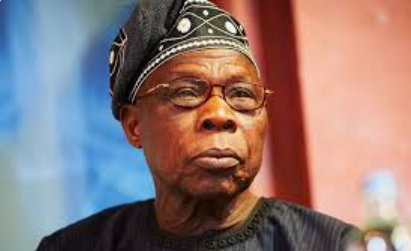Former President Olusegun Obasanjo’s fervent call to eradicate poverty in Africa resonated powerfully at Dele Momodu’s leadership lecture, where he underscored China’s remarkable achievement of lifting 700 million people out of poverty as a potent source of inspiration. Obasanjo emphasized the imperative of learning from China’s success, advocating for a multi-pronged approach centered on education, security, and robust leadership to combat hunger and poverty effectively. He argued that education empowers individuals with the knowledge and skills necessary to escape the clutches of poverty, while security provides the stable environment essential for economic growth and development. Strong leadership, he asserted, is the catalyst that drives these efforts forward, ensuring effective implementation and fostering a culture of accountability.
Obasanjo’s address highlighted the critical interconnectedness of education, security, poverty, and leadership. He argued that a lack of education inevitably breeds poverty, creating a vicious cycle that perpetuates disadvantage across generations. Insecure environments, plagued by conflict or instability, stifle economic opportunities and hinder progress towards poverty reduction. Effective leadership, therefore, must prioritize both education and security as foundational elements in the fight against poverty. He further emphasized the importance of integrity, discipline, and good governance as crucial ingredients in achieving sustainable development and poverty eradication. By adhering to these principles, Obasanjo believes Nigeria can replicate China’s success and liberate its citizens from the grip of poverty.
The urgency of Obasanjo’s message was underscored by his stark warning about the potential consequences of inaction. He cautioned that if Nigeria fails to address poverty effectively, the nation risks becoming a “gunpowder keg,” rife with instability and poised for potential upheaval. This graphic analogy vividly depicts the precarious situation and underscores the need for swift and decisive action. Obasanjo’s concern extends beyond Nigeria’s borders, encompassing the entire African continent. He argued that until Africa eradicates poverty, it will not garner the respect and recognition it deserves on the global stage. This assertion highlights the link between poverty and international standing, emphasizing the importance of poverty eradication not only for internal development but also for enhancing Africa’s image and influence globally.
The presence of prominent figures like the Ooni of Ife, Adeyeye Enitan Ogunwusi, and Governor Ademola Adeleke at the lecture lent further weight to Obasanjo’s message. The Ooni echoed Obasanjo’s call for action, emphasizing the vital role of patriotism in overcoming poverty. He suggested that a sense of shared national purpose and commitment to the common good can galvanize efforts towards poverty reduction. Governor Adeleke, while congratulating Momodu on his leadership centre, also highlighted Osun State’s development projects, demonstrating a commitment to addressing poverty at the state level. The presence of these influential figures signifies a broader recognition of the importance of tackling poverty and suggests a potential for collaborative efforts across different levels of government and society.
Obasanjo’s address can be seen as a clarion call to action, urging Nigeria and the broader African continent to prioritize poverty eradication. His emphasis on learning from China’s success underscores the importance of studying and adapting successful models from other parts of the world. The focus on education, security, and leadership provides a framework for action, highlighting the key areas that require attention. The warning about potential instability serves as a powerful motivator, urging swift and decisive intervention. Finally, the involvement of prominent figures like the Ooni and Governor Adeleke suggests the potential for a concerted and collaborative approach to tackling this critical challenge.
In essence, Obasanjo’s message is one of hope and urgency. He believes that poverty in Africa is not an insurmountable obstacle but a challenge that can be overcome with the right approach. By prioritizing education, ensuring security, fostering strong leadership, and embracing principles of integrity, discipline, and good governance, Africa can unlock its potential and secure a brighter future for its citizens. The call to learn from China’s example provides a tangible roadmap for progress, while the warning about potential instability underscores the urgency of the situation. The presence and support of influential figures suggest a growing momentum towards concerted action. Ultimately, Obasanjo’s message is a call to action, urging a collective effort to eradicate poverty and unlock Africa’s full potential.


